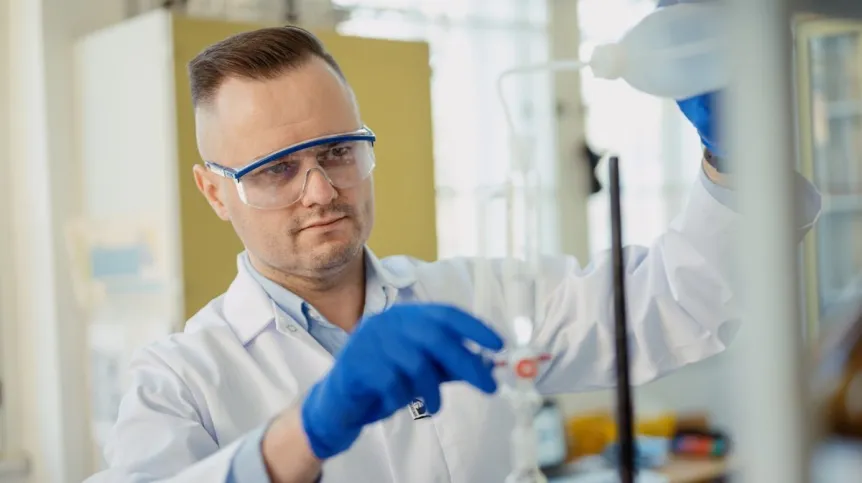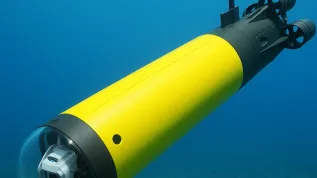
Scientists from the Gdańsk University of Technology are working on new compounds blocking the activity of enzymes that play a key role in the SARS-CoV-2 coronavirus replication process. 'The potential new drug could be used in the early stage of the disease and prevent its development to a severe form', says the leader of the team from the Gdańsk University of Technology, Professor Sebastian Demkowicz.
According to the Gdańsk University of Technology release, researchers at the Department of Organic Chemistry of the Faculty of Chemistry are working on new compounds blocking the activity of enzymes that play a key role in the SARS-CoV-2 coronavirus replication process
'We have obtained effective SARS-CoV-2 Mpro protease enzyme inhibitors, that is low molecular chemical compounds blocking the activity of the protein', explains Professor Sebastian Demkowicz.
The scientist admits that this research is at the preliminary stage when it comes to the development of a drug. So far, the researchers have conducted in vitro studies (laboratory tests +outside the body+, in cell cultures), including tests of the obtained chemical substances in relation to the enzyme (SARS-CoV-2 Mpro protease). 'This enzyme is necessary for the virus replication process in the body (enzymes are proteins that act as catalysts of various chemical reactions occurring in organisms). Blocking its activity as a result of the action of the obtained compounds prevents the development of virus and potential development of the disease. The experimental results confirm that the substances we have obtained very effectively inhibit this protease', the professor adds.
The range in vitro experiments included the examination of cytotoxicity in relation to human lung cells and blood vessels endothelium to determine the safety of potential use. 'In these studies, we receive preliminary information on cytotoxicity, and on this basis we can determine whether tested substances are safe at this stage of the research. The results confirm that the obtained compounds do not exhibit cytotoxicity and are very promising', the scientist explains.
According to professor, in the future the results of this works will allow to develop an effective, safe and cheap Polish drug that will prevent the severe course of COVID-19.
'We expect that the obtained compounds will also be effective against the SARS-CoV-2 virus and their potential will be confirmed in research on living organisms', says Demkowicz.
The scientist believes that the new compounds will not directly affect the number of COVID-19 cases. 'These compounds, as drugs, are intended for the treatment of the disease, for patients who have already been infected with coronavirus. The number of cases mainly is affected by vaccines and other prophylactic measures', he explains.
Before the drug appears in pharmacies, it will have to pass clinical tests. 'The development of drugs in a normal situation usually takes a few years or more. In addition to laboratory (preclinical) research, a drug must successfully pass the individual stages of clinical trials and receive marketing authorisation. The pace of such research varies depending on funding and relevant investors' support', adds Demkowicz.
The project 'Design, synthesis and investigation of the biological activity of new SARS-CoV-2 Mpro protease inhibitors as potential chemotherapeutic agents in COVID-19 treatment' is implemented as part of the Curium - Combating Coronavirus programme. The value of the project exceeds PLN 195 thousand. (PAP)
author: Piotr Mirowicz
pm/ agt/ kap/
tr. RL













